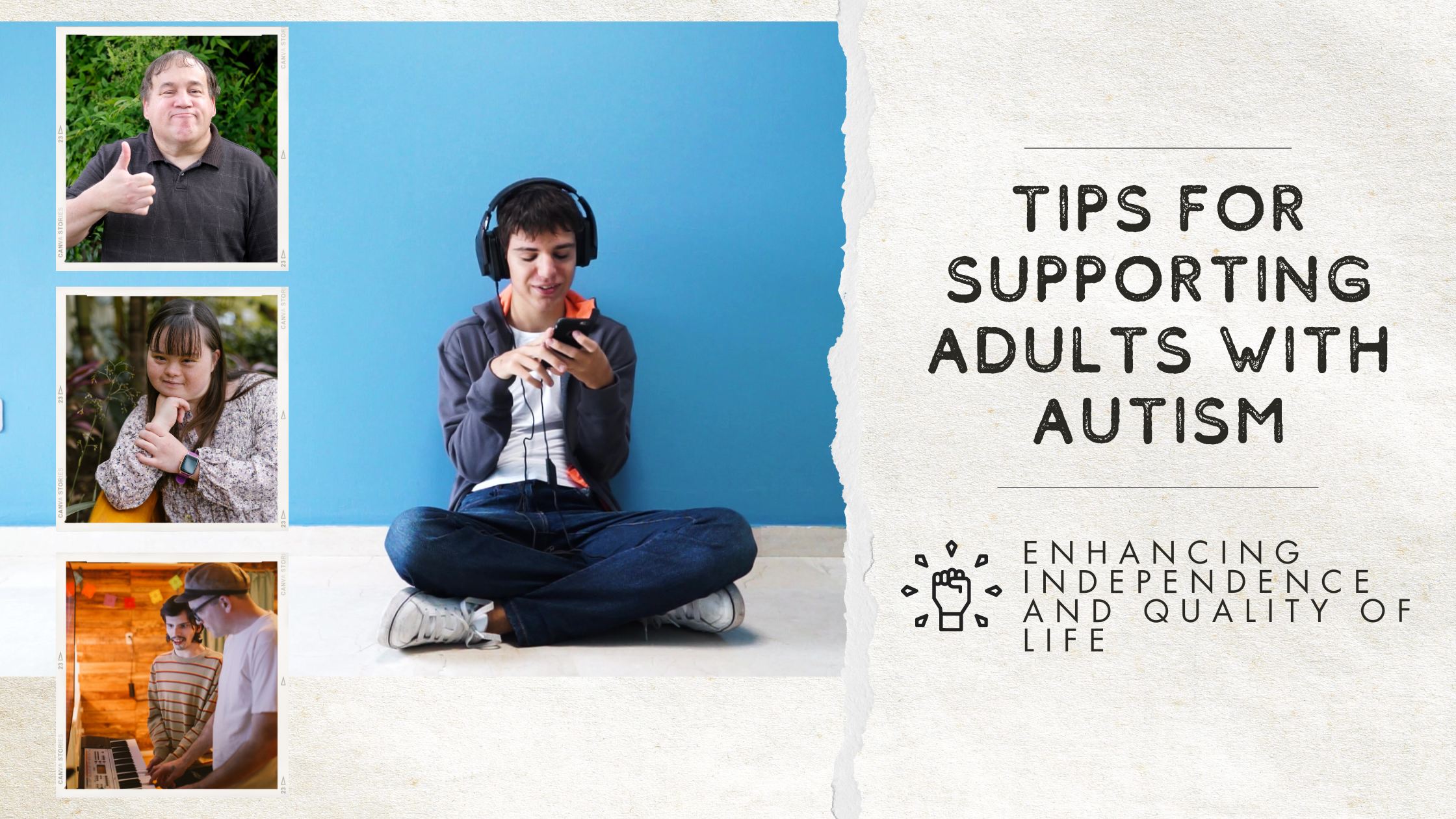Tips for Supporting Adults with Autism: Enhancing Independence and Quality of Life
July 5, 2024

Supporting adults with Autism involves understanding their unique needs and providing resources that promote independence, social integration, and overall well-being. Whether you’re a family member, friend, or caregiver, implementing effective strategies can significantly enhance the quality of life for adults with Autism. In this blog post, we’ll explore practical tips for supporting adults with Autism in various aspects of their lives.
- Foster Independence: Promoting independence is crucial for adults with Autism to lead fulfilling lives.
- Life Skills Training: Provide training in essential life skills such as cooking, cleaning, personal hygiene, and money management. Use visual aids, step-by-step instructions, and practice routines to help them master these skills.
- Assistive Technology: Utilize technology such as apps, timers, and reminders to support daily tasks and time management. Devices like smartphones and tablets can be valuable tools for enhancing independence.
- Encourage Social Interaction: Social connections are vital for emotional well-being and personal growth.
- Social Skills Training: Offer opportunities for practicing social skills in a safe and supportive environment. Role-playing, social stories, and group activities can help improve communication and interaction skills.
- Community Involvement: Encourage participation in community activities, clubs, or groups that align with their interests. Volunteering and joining hobby groups can provide meaningful social interactions.
- Support Employment and Vocational Goals: Meaningful employment can greatly enhance self-esteem and financial independence.
- Job Matching: Help identify job opportunities that match their skills, interests, and strengths. Look for roles that provide structure, clear expectations, and a supportive work environment.
- Workplace Accommodations: Advocate for necessary workplace accommodations, such as modified workspaces, flexible schedules, and clear communication of tasks. Encourage open communication with employers about their needs.
- Promote Health and Well-Being: Maintaining physical and mental health is essential for a high quality of life.
- Regular Exercise: Encourage regular physical activity tailored to their preferences and abilities. Activities like walking, swimming, or yoga can improve physical health and reduce stress.
- Mental Health Support: Provide access to mental health resources, including counseling and therapy. Support groups specifically for adults with Autism can offer a sense of community and understanding.
- Enhance Daily Living and Leisure Activities: Engaging in meaningful activities can improve overall happiness and satisfaction.
- Hobbies and Interests: Encourage exploration of hobbies and interests that bring joy and fulfillment. Whether it’s art, music, gardening, or technology, finding enjoyable activities is important.
- Routine and Structure: Maintain a consistent daily routine to provide a sense of stability and predictability. Use visual schedules and planners to organize daily activities.
- Build a Support Network: A strong support network is crucial for both the individual and their caregivers.
- Family and Friends: Foster strong relationships with family and friends who can provide emotional support and practical assistance.
- Professional Support: Seek guidance from professionals such as occupational therapists, speech therapists, and behavioral specialists who can offer tailored support and interventions.
Supporting adults with Autism requires a compassionate and individualized approach that promotes independence, social engagement, and overall well-being. By implementing these practical tips, you can help enhance the quality of life for adults with Autism and empower them to achieve their full potential. Remember, ABA Solutions is dedicated to providing comprehensive support and resources tailored to the unique needs of adults with Autism and their families.
